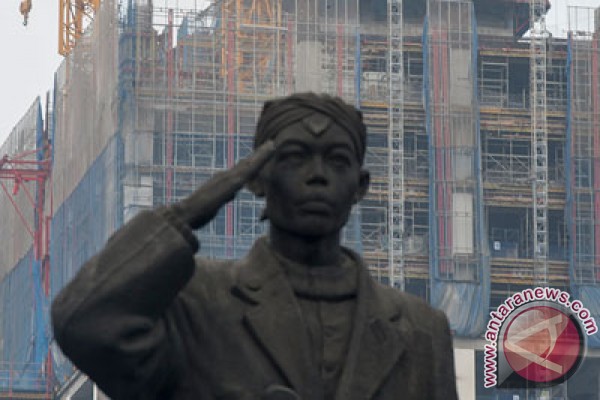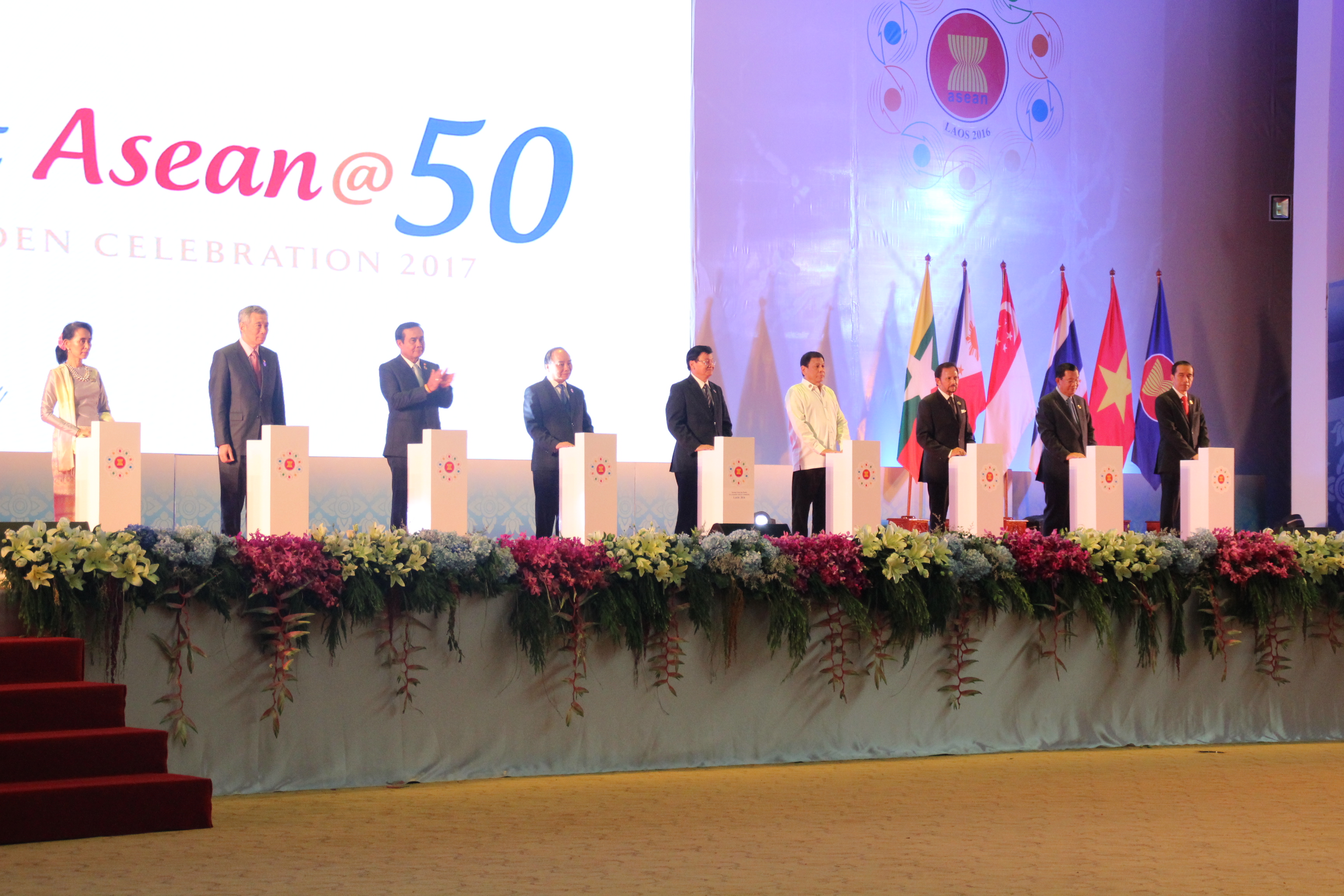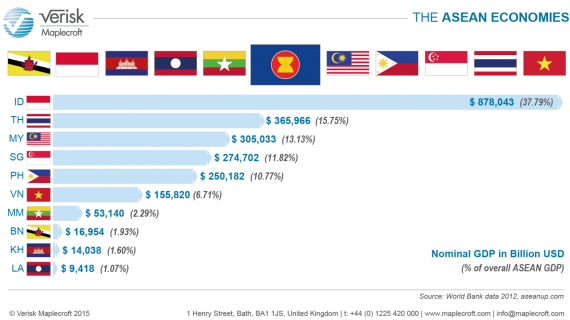Nike
ELITE MEMBER

- Joined
- Mar 28, 2013
- Messages
- 13,866
- Reaction score
- 24
- Country
- Location
SEMICON Southeast Asia 2016 comes back to Penang
Kamis, 11 Februari 2016 16:15 WIB | 1.679 Views
Largest Regional Semiconductor Industry Conference Set To Draw More Than 7000 Visitors
PENANG, Malaysia, Feb 11, 2016 - (Antara) - SEMI, the global industry association serving the nano- and micro-electronic manufacturing supply chains, will once again be hosting SEMICON Southeast Asia (SEMICON SEA), the region's premier showcase for microelectronics innovation. With the objective to champion regional collaboration, the showcase will open new business opportunities for customers and foster stronger cross-regional engagement.
Set to take place from 26-28 April 2016 at the Subterranean Penang International Convention and Exhibition Centre (SPICE) in Penang, Malaysia, SEMICON SEA 2016 will offer a complete platform for engaging customers, suppliers, engineers and decision-makers from across the industry.
According to Ng Kai Fai, President of SEMI Southeast Asia, "SEMICON SEA 2016 is the ideal place to discover the technologies and trends that are driving advances in microelectronics manufacturing. From an in-depth market trends briefing, to technology and business forums, visitors will be able to learn what is driving development and growth in the global and Southeast Asia microelectronics markets"
"With stronger and more expanded content, we expect the showcase this year to reach to a larger audience, not only from Malaysia and Singapore, but also from leading semiconductor nations such as Vietnam, Thailand, Philippines and Indonesia," he added.
SEMICON SEA 2016 will focus on the key trends and solutions in semiconductor design and manufacturing, including emphasis on serving the needs of expanding applications markets many of which require development of specialised materials, packaging, and test technologies, as well as new architectures and processes.
"Our inaugural SEMICON SEA 2015 was a resounding success with a total of 6,940 industry players from around the world attending the three-day conference. Furthermore, visitors last were those who are primarily involved in purchasing decisions, influencing the selection and final purchase of microelectronics manufacturing equipment, materials, components, and services."
"The positive response for SEMICON SEA last year clearly shows that industry participants recognises the need to network, collaborate and innovate in order to grow and compete. Furthermore, SEMICON SEA gives exhibitors the opportunity to engage with their customers and showcase their technology leadership. In fact, this year, we are already off to a good start with many of our booths already been taken up. As such, we are confident that SEMICON SEA 2016 will be another sterling success."
To register for SEMICON SEA 2016 or to explore exhibiting opportunities, visitSEMICON Southeast Asia or contact Ms. Shannen Koh at [email protected].
Sponsors for SEMICON SEA 2015 included Applied Materials, AMEC, GlobalFoundries, EV Group, KLA-Tencor, Kulicke & Soffa, Lam Research, SCREEN and Xcerra Corporation. Partners include Invest Penang, VLSI Consultancy, Malaysia Investment & Development Authority (MIDA), Ministry of Tourism and Culture Malaysia, Malaysia Convention & Exhibition Bureau (MyCEB), Penang Tourism and Singapore Manufacturing Federation.
Contact:
This release issued on behalf of SEMI
by Acendus Communications Sdn Bhd.
Michael Poh at +60 12 395 5202 or
Reshvinder Kaur at +60 17 275 7985.
SEMICON Southeast Asia 2016 comes back to Penang - ANTARA News
Kamis, 11 Februari 2016 16:15 WIB | 1.679 Views
Largest Regional Semiconductor Industry Conference Set To Draw More Than 7000 Visitors
PENANG, Malaysia, Feb 11, 2016 - (Antara) - SEMI, the global industry association serving the nano- and micro-electronic manufacturing supply chains, will once again be hosting SEMICON Southeast Asia (SEMICON SEA), the region's premier showcase for microelectronics innovation. With the objective to champion regional collaboration, the showcase will open new business opportunities for customers and foster stronger cross-regional engagement.
Set to take place from 26-28 April 2016 at the Subterranean Penang International Convention and Exhibition Centre (SPICE) in Penang, Malaysia, SEMICON SEA 2016 will offer a complete platform for engaging customers, suppliers, engineers and decision-makers from across the industry.
According to Ng Kai Fai, President of SEMI Southeast Asia, "SEMICON SEA 2016 is the ideal place to discover the technologies and trends that are driving advances in microelectronics manufacturing. From an in-depth market trends briefing, to technology and business forums, visitors will be able to learn what is driving development and growth in the global and Southeast Asia microelectronics markets"
"With stronger and more expanded content, we expect the showcase this year to reach to a larger audience, not only from Malaysia and Singapore, but also from leading semiconductor nations such as Vietnam, Thailand, Philippines and Indonesia," he added.
SEMICON SEA 2016 will focus on the key trends and solutions in semiconductor design and manufacturing, including emphasis on serving the needs of expanding applications markets many of which require development of specialised materials, packaging, and test technologies, as well as new architectures and processes.
"Our inaugural SEMICON SEA 2015 was a resounding success with a total of 6,940 industry players from around the world attending the three-day conference. Furthermore, visitors last were those who are primarily involved in purchasing decisions, influencing the selection and final purchase of microelectronics manufacturing equipment, materials, components, and services."
"The positive response for SEMICON SEA last year clearly shows that industry participants recognises the need to network, collaborate and innovate in order to grow and compete. Furthermore, SEMICON SEA gives exhibitors the opportunity to engage with their customers and showcase their technology leadership. In fact, this year, we are already off to a good start with many of our booths already been taken up. As such, we are confident that SEMICON SEA 2016 will be another sterling success."
To register for SEMICON SEA 2016 or to explore exhibiting opportunities, visitSEMICON Southeast Asia or contact Ms. Shannen Koh at [email protected].
Sponsors for SEMICON SEA 2015 included Applied Materials, AMEC, GlobalFoundries, EV Group, KLA-Tencor, Kulicke & Soffa, Lam Research, SCREEN and Xcerra Corporation. Partners include Invest Penang, VLSI Consultancy, Malaysia Investment & Development Authority (MIDA), Ministry of Tourism and Culture Malaysia, Malaysia Convention & Exhibition Bureau (MyCEB), Penang Tourism and Singapore Manufacturing Federation.
Contact:
This release issued on behalf of SEMI
by Acendus Communications Sdn Bhd.
Michael Poh at +60 12 395 5202 or
Reshvinder Kaur at +60 17 275 7985.
SEMICON Southeast Asia 2016 comes back to Penang - ANTARA News













